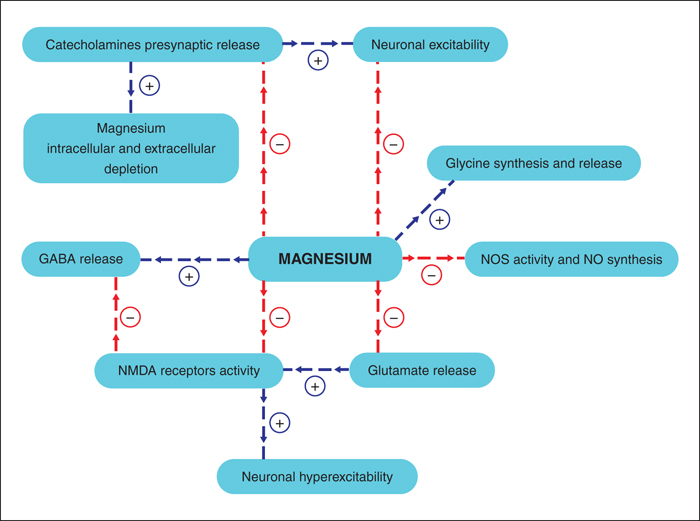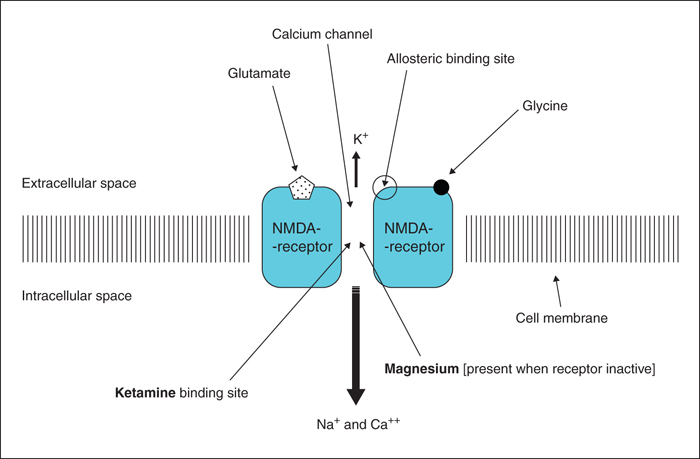Magnesium Research
MENUKetamine and magnesium common pathway of antidepressant action Volume 31, numéro 2, April-May-June 2018
- Mots-clés : magnesium, ketamine, major depressive disorder
- DOI : 10.1684/mrh.2018.0440
- Page(s) : 33-8
- Année de parution : 2018
Depression is one of the major causes of disability worldwide. A proportion of adults with major depression fail to achieve remission with first-line treatment. Magnesium influences the neurotransmission involved in emotional processes, such as the serotonergic, noradrenergic, dopaminergic, GABAergic and glutamatergic systems. It has been reported that the mechanism of antidepressants’ action is involved in the glutamatergic system. Theories about the role of magnesium ions in pathophysiology of major depressive disorder include blocking the glutamatergic N-methyl-D-aspartate receptor (NMDAR). Ketamine, NMDAR antagonist, was found to promote fast-acting antidepressant and antisuicidal effects. Magnesium and ketamine seem to be involved in key mechanisms of the major depression pathophysiology. The evidence in the paper discussed may indicate the synergistic interaction between magnesium and ketamine pharmacodynamic activity being of particular importance in mood disorders.



